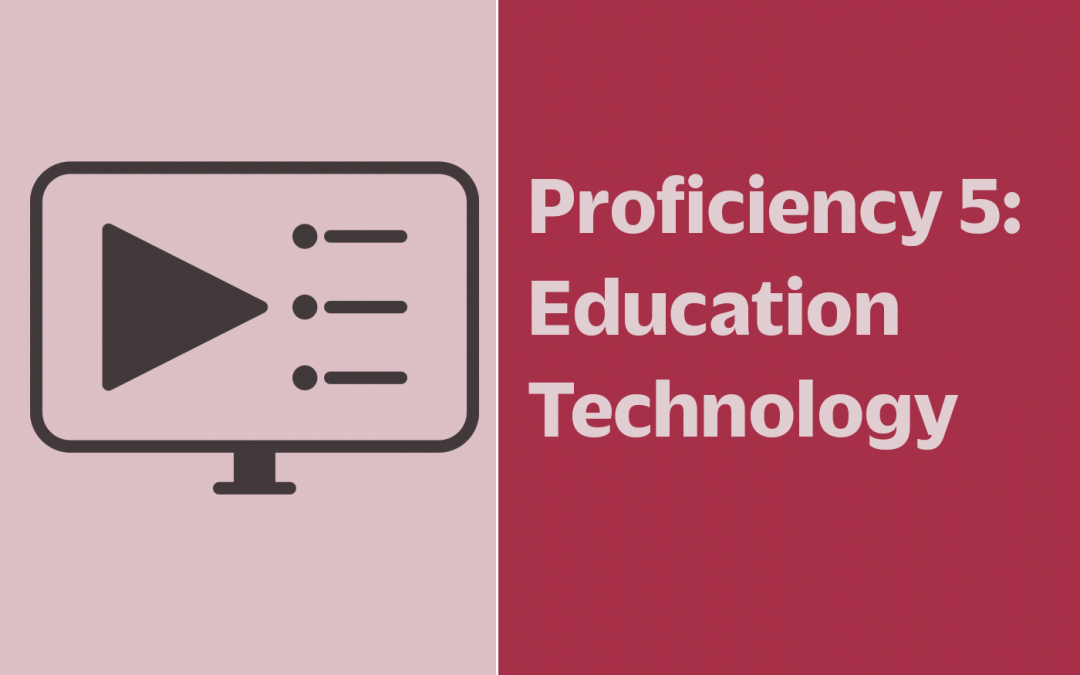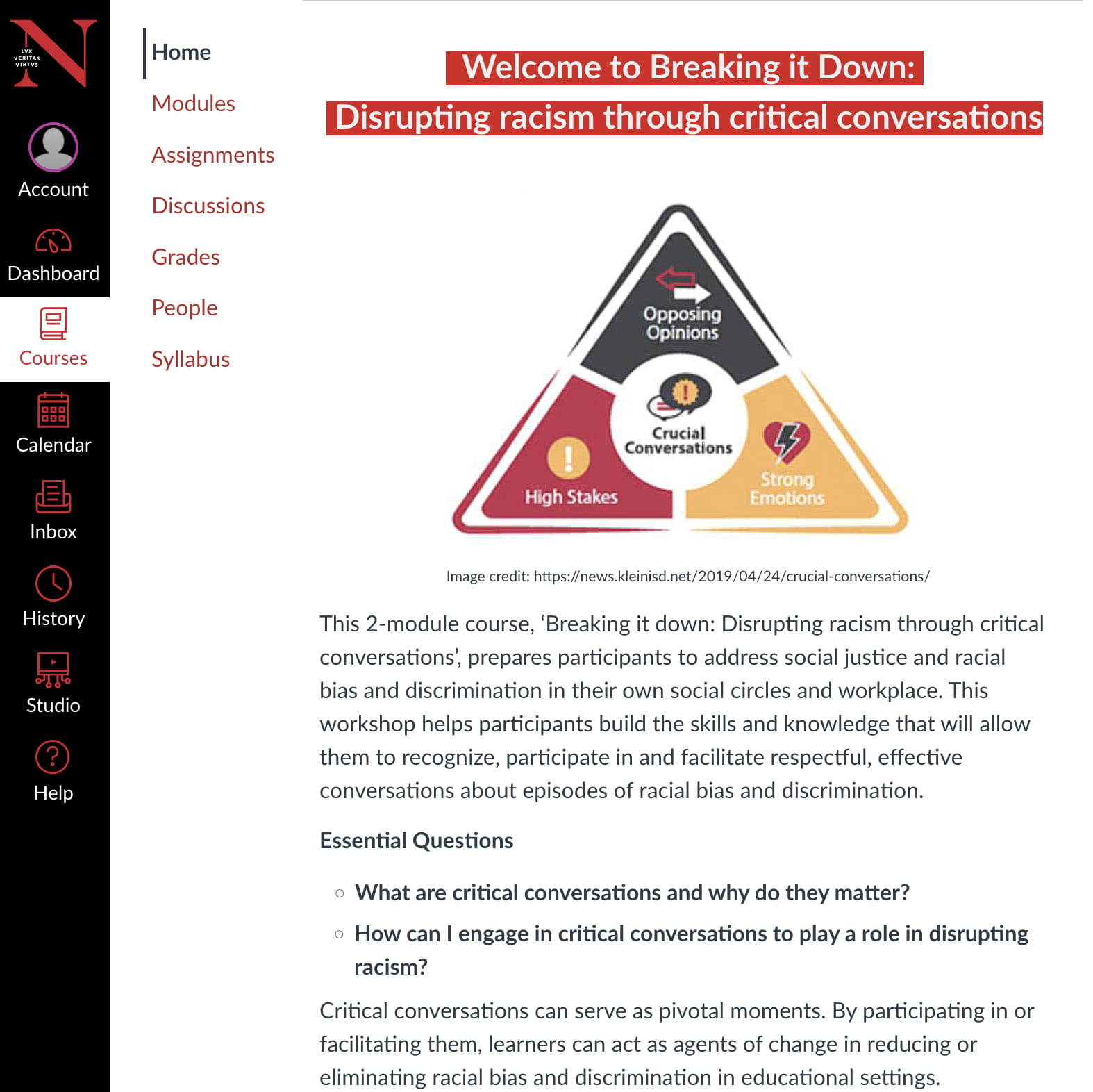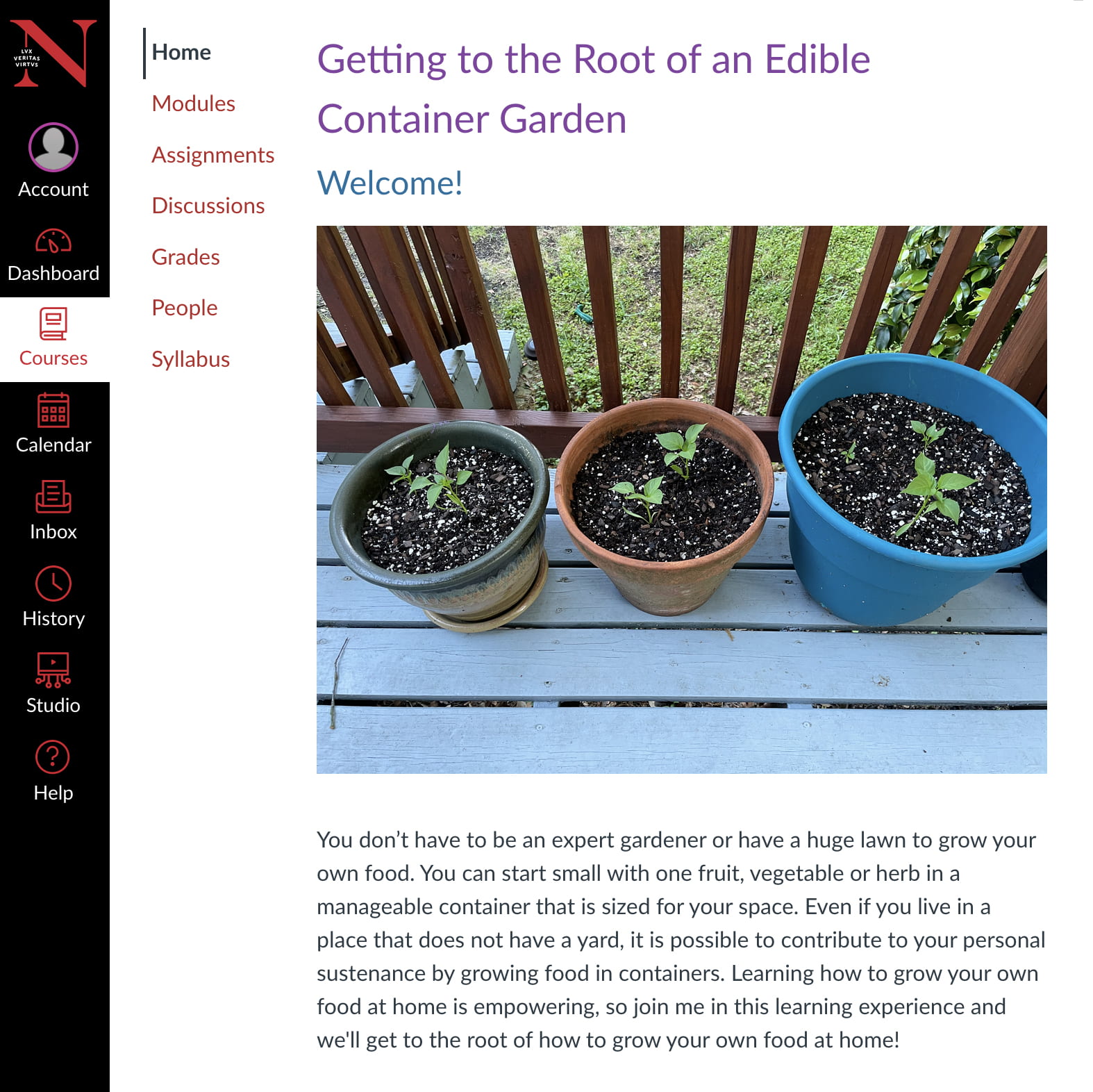Student Reflection
“I was challenged to be creative with using OERs to build something new. It was eye opening to see the many elements that go into creating an effective online course from scratch. I never thought I would have the skills to build one myself, and I am proud of what I built. I have been able to expand my knowledge of what it means to take ownership of your work and the power to share it with others.”
Definition
Definition here
Essential Understanding(s)
Essential Understanding here
Sample Assignment: Mini-MOOC
- Individual choice of topic, selected during the same week when course participants explore OERs for the COOL Collection assignment
- Curation: Mini-MOOC content must include at least three forms of high-quality open learning resources that were created by another entity (e.g., materials, videos, tools).
- Learning Experience Design: Mini-MOOC process guided by a multi-week planner, adapted from the Backward Design planner developed by Wiggins & McTighe (2005)
- Education Technology: Stage the learning experience in a learning management system, set to self-enroll, or in another platform that is available to the public.
- Open Pedagogy: Mini-MOOC should model open pedagogy by fostering interaction between min-MOOC participants and actively engaging them in the development of authentic work products that can be shared beyond the course. Original materials authored for the Mini-MOOC should be assigned a Creative Commons license of the course author’s choosing
View The Assignment



